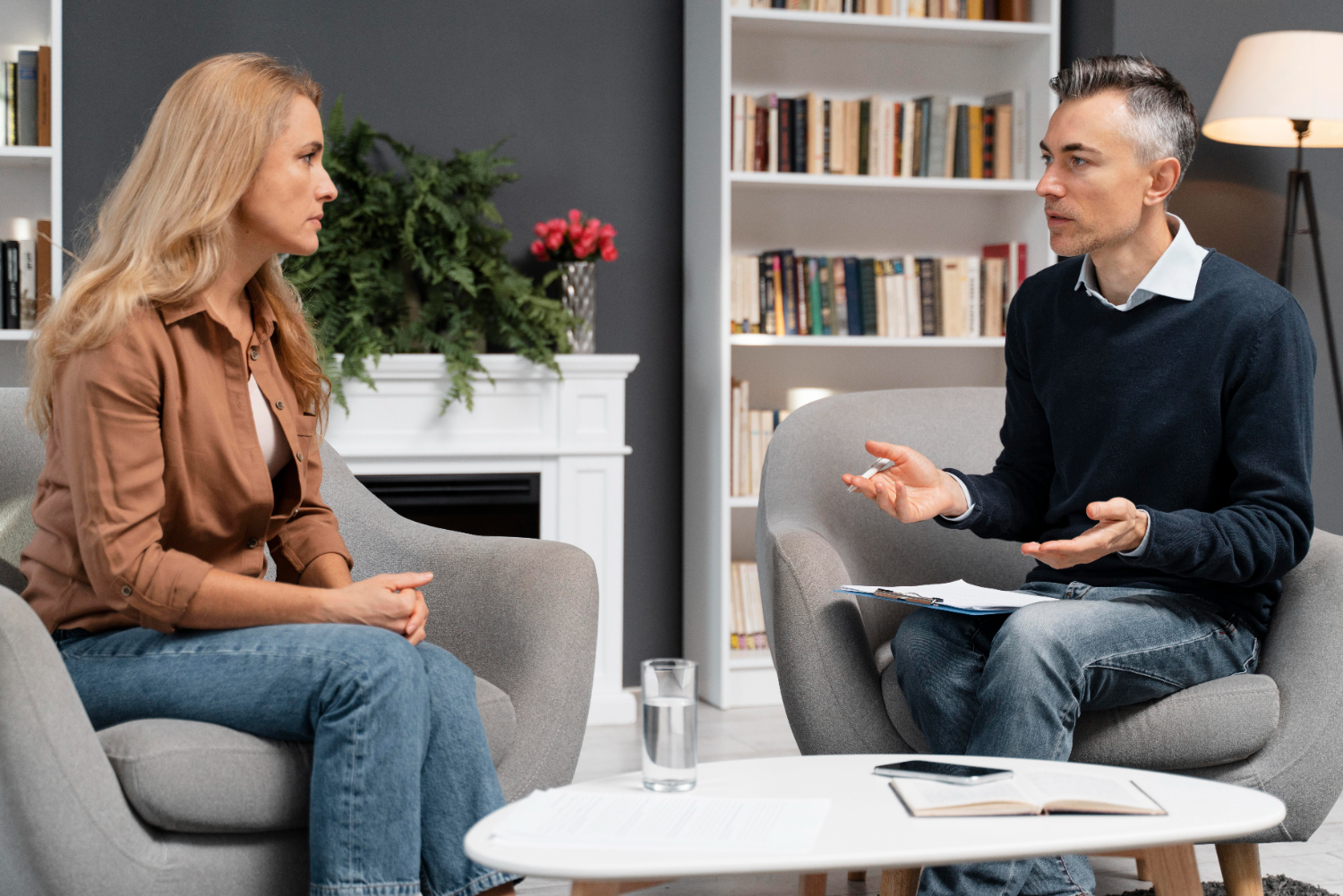5 Life-Changing Tools You Can Learn in Individual Counselling
Last Updated on March 25, 2025 by Prath

Have you ever felt overwhelmed by your emotions, stuck in negative thought patterns or unable to accept change?
If so, you may also have wished for the right skills and tools to navigate these challenges more effectively.
This is where professional counselling comes in – helping you develop life-changing skills to face everyday challenges confidently.
Read on to explore five useful and life-changing tools you can learn through counselling in Australia.
If you’re thinking about starting mental health counselling, you may wonder, “What are the practical benefits I’ll gain out of this?”
While counselling provides a safe space to talk, its true power lies in equipping you with long-term skills that ensure you thrive mentally and emotionally.
The specific tools and skills that you learn may vary depending on the following:
That being said, the forthcoming sections discuss five crucial tools you may learn during your counselling sessions.


Have you ever snapped at someone after a stressful day, only to wish you had managed the situation better?
During such moments, it can often feel like our emotions are out of our control. But the truth is that we can learn to regulate them.
Emotional regulation is the skill of observing, identifying, understanding, processing, and managing your emotions effectively.
Below is a practical step-by-step breakdown of how your counsellor in Australia may help you build the skill of emotional regulation.
The first and most important step in emotional regulation is recognising that you’re feeling an emotion and putting a name to it.
Let’s say you’re feeling emotional after receiving feedback at work.
Instead of letting yourself fall down the rabbit hole of overwhelm, take a step back and acknowledge that you’re experiencing an emotion.
Next, try to identify the emotion. Are you feeling angry? Frustrated? Embarrassed?
Remember that some emotions may be complex and confusing. It’s also natural to feel multiple emotions at once. Label the emotions as best as you can – they need not be dictionary-perfect.
Identified your emotion and gave it a name? That’s a great start!
Your counsellor may now move on to understanding the emotion and why it arose.
This second step involves identifying plausible triggers that may have caused the emotion. This may include:
Observe your triggers carefully and note whether there is any recurring pattern.
Let’s pick up the same example of receiving feedback at work.
You’ve now identified the emotions that you’re feeling – frustrated and self-conscious.
Instead of immediately reacting to the emotions or suppressing them, take another moment to reflect on why these particular emotions could have appeared.
Ask yourself, “What could have triggered this emotion?”
For instance, here are some possible answers:
Taking the time to detach from the situation and observe such patterns helps you put things in perspective. You may now be able to distinguish the situation from your emotions. This perspective shift is key to emotional regulation.
Once you’ve identified the emotion and understood the triggers behind it, your counsellor may guide you in accepting it.
Acceptance is key to the final step – managing the emotion in a healthy manner.
Your counsellor in Australia may help you regulate the emotion through any of the following coping strategies:
Imagine you’re having dinner with your family. Your mother wants you to go on a date with her friend’s son. You’re not interested in doing this. You really want to say no, but you hesitate, worried about hurting your mother’s feelings.
Saying yes in this situation may lead to an unwanted and awkward date and a strained relationship with your mother.
Situations like these are common in everyone’s life, be it at work, home or elsewhere. Through counselling, you can develop valuable interpersonal skills such as active listening, assertiveness and conflict resolution.

Boundaries are vital in every relationship. They help protect mental well-being and foster mutual trust between the people in the relationship.
Your counsellor in Australia may guide you in:
Your friend has recently started going out with someone. They become less and less present in your life. You decide to voice your needs to your friend.
“I really love you and value our friendship a lot. But I’ve been going through a hard time lately, and I feel like you’ve not been there for me. I’m really happy about your new relationship, but I want my friend to be present in my life. Can you try setting aside more time for us to spend together?”
Effective communication is as much about listening as it’s about talking!
Over the course of counselling sessions in Australia, you may hone the skill of active listening.
Active listening involves:
Your partner tells you, “I had a tough day at work”.
By practising active listening, you can say, “I’m sorry to hear that. Do you want to tell me what happened?”
Such open-ended questions show people that you care about them genuinely and want to listen.
Disagreements and conflicts can arise in any relationship. However, what matters is handling them in a healthy and mature way.
In counselling, you may learn to:
You’re arguing with your brother over him invalidating your opinions.
In the heat of the moment, you may be tempted to say, “You never listen to me!” Instead, try saying, “I often feel unheard when I share my thoughts. Can we work on this together?”
Empathy is the interpersonal skill of viewing situations from another’s perspective. It’s a crucial tool to have in your life-skill arsenal.
By seeking counselling, you may become more empathetic towards other people. You may learn to:
Empathy allows you to build deeper and stronger connections with the people in your life.
At the end of a workday, your colleague tells you, “ I feel exhausted after today’s meetings.”
Instead of joking with, “Come on! I was in the same meetings, too, and I’m doing just fine.” answer more empathetically, such as, “I hear you. You led two of those meetings – it must’ve been very exhausting. Do you want to grab a coffee and wind down together?”
Cognitive behavioural therapy (CBT) is a widely practised type of counselling.
It centres around the belief that emotions stem from thoughts. Hence, according to CBT, you may improve your mental health by identifying and restructuring negative thought patterns.
Compared to many other therapeutic approaches, CBT is very hands-on.
If you choose to see a counsellor in Australia who specialises in CBT, your sessions will likely be full of practical assignments and homework!
CBT is thus a portable approach that you may continue applying in your daily life.
Here’s a quick step-wise breakdown of how cognitive reframing works:
You make a mistake at school and feel terrible.
You note that the situation is making a mistake at school, and you feel embarrassed and self-critical.
Your automatic thought is, “I’m terrible at math.”
Based on what you’ve learnt during your CBT sessions, you identify this thought as overgeneralisation – assuming that one mistake defines your overall ability in the subject.
Problem-solving skills help you approach challenges with a structured and proactive mindset instead of feeling overwhelmed or stuck in the situation.
You may be wondering how the process of problem-solving flows. Read on to explore the two key steps involved in this technique.

Your counsellor in Australia may first guide you in breaking down the problem or task into smaller parts.
You’re choosing a university for your undergraduate studies. You’re feeling anxious and overwhelmed by the gravity of this decision.
Using the technique of problem-solving, you divide the decision into multiple smaller decisions until they seem manageable to you. This can look like:
After you’ve broken down the problem into manageable chunks, the next steps involve:
You’ve shortlisted three universities but are unsure which one to choose.
In order to make the decision, you:
By evaluating your options logically, you can make your decision with confidence!
Mindfulness is the practice of being fully present in the current moment without any judgment. It helps you cultivate self-awareness, manage stress, and improve emotional well-being.
Your counsellor in Australia may introduce you to different mindfulness techniques. Following are some common mindfulness-based tools:
Meditation is a mindfulness practice that helps you develop an awareness of yourself and your thoughts by focusing on the present moment.
You can practice mindfulness meditation with a guide, such as your counsellor, or practise it yourself through self-direction.
You’ve had a stressful day at work, and your mind is racing with worries. You sit in a quiet space, put on a guided mindfulness meditation, close your eyes, and focus on your breath. As you follow the prompts and observe your thoughts without judgment, you start to feel calmer and more grounded.
A body scan is a mindfulness exercise where you focus your attention on different parts of your body, noticing the sensations that you feel there and releasing any tension present.
You’re feeling anxious and tense before a presentation at university. You close your eyes and do a quick body scan – noticing the areas of your body that feel tense and releasing the tension from them.
What is mindful breathing? It’s a practice where you focus on your breathing and consciously bring it to a slow and consistent rate. It helps create a sense of calm, focus and safety.
The most common mindfulness breathing technique is the 4-7-8 technique. Here’s how you do it:
Your child is throwing a tantrum. You feel anger start to bubble up. Instead of reacting impulsively to their actions, you take a moment to sit down and practise mindful breathing. After a few rounds of the 4-7-8 breathing technique, you feel calmer and ready to talk to your child.
Whether you seek counselling for mental health concerns or personal growth, the tools you learn during your sessions can have a lasting impact on your life.
Your counsellor in Australia may work with you to ascertain the specific tools and skills that are best suited to your unique needs.
Below is a quick look at five life-changing tools, skills and techniques you may learn through counselling:
Now that you’ve explored the practical benefits of professional counselling, are you ready to start your mental health journey? Click here to explore TYHO Therapists offering affordable online counselling services in Australia!
